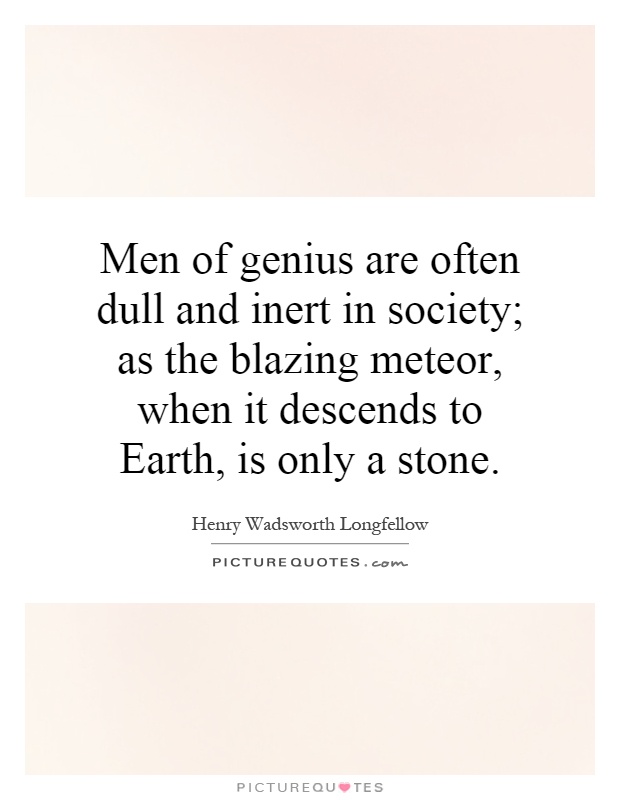Men of genius are often dull and inert in society; as the blazing meteor, when it descends to Earth, is only a stone

Men of genius are often dull and inert in society; as the blazing meteor, when it descends to Earth, is only a stone
Henry Wadsworth Longfellow, one of the most celebrated American poets of the 19th century, was a man of great genius. His works, such as "The Song of Hiawatha" and "Paul Revere's Ride," have stood the test of time and continue to be studied and admired by readers around the world. However, Longfellow himself was known to be a rather reserved and introverted individual in social settings. This dichotomy between his genius on the page and his perceived dullness in society can be seen as a manifestation of the quote, "Men of genius are often dull and inert in society; as the blazing meteor, when it descends to Earth, is only a stone."Longfellow's brilliance as a poet was undeniable, but in his personal interactions, he was often described as quiet and unassuming. He preferred the company of close friends and family to large social gatherings, and he was known to be a thoughtful and introspective individual. This contrast between his inner world of creativity and his outward demeanor of modesty can be likened to the image of a blazing meteor that, upon reaching the Earth, loses its fiery brilliance and becomes just another ordinary stone.
Despite his reserved nature, Longfellow's impact on American literature and culture was immense. His poems captured the spirit of the times and resonated with readers of all backgrounds. Through his words, he was able to illuminate the human experience in a way that was both profound and accessible. In this sense, Longfellow's genius transcended his personal demeanor and shone brightly for all to see.












 Friendship Quotes
Friendship Quotes Love Quotes
Love Quotes Life Quotes
Life Quotes Funny Quotes
Funny Quotes Motivational Quotes
Motivational Quotes Inspirational Quotes
Inspirational Quotes